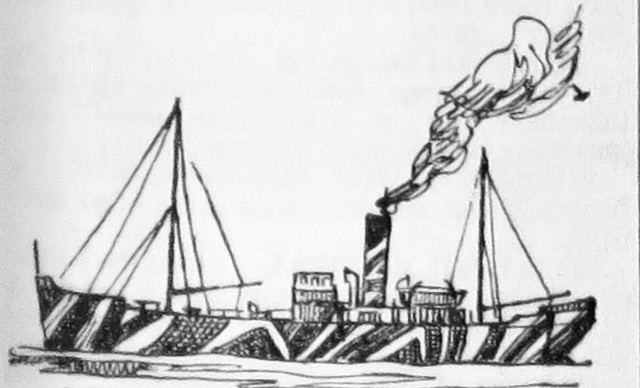 C.Elwydd Abel Prentiss: His Life and Work
C.Elwydd Abel Prentiss: His Life and Work
O’r cwm i’r byd – bywyd chwedlonol antur a barddoniaeth
He was known as the Rhondda Rhymer and the Barroom Boyo and no one seems to agree on what the C stood for. His sister Martha – to whom he entrusted his papers – was certain it was Cyril but she always called him Elwydd. At sea, they called him Woody. On the sheep station, they called him Chunky or the Chunky Taff because however much he ate he stayed as rawboned as the day he hopped the coal wagon down to Cardiff.
I am indebted to the tireless efforts of Gwen Juniper, Senior Lecturer in Outback Studies at the University of Billancoo in New South Wales. With help from graduate students, Junifer maintains the Prentiss Archive, bequeathed to the U of B by Mrs. Martha Alice Blackthorn of Sydney, NSW, the sister of C.Elwydd Prentiss.
He was born in Wales – son of a miner from Blaenllechau who worked the Ferndale seam until a colliery accident mangled a leg. One of five children, he yearned to see the world. Hopped a ride down the valley on a coal wagon. Two days later and he’s signed on a deckhand on the SS Pride of Harlech, a tramp steamer sailing from Roath dock with a cargo of coal bound for Argentina. He was 15 years old. For the next three years he worked the steamers as they plied their goods – coal, iron ore, grain, phosphate, and salted cod across the Atlantic. When the world trade slowed, he jumped ship in Sydney and found work on a sheep farm. He had always been a writer and at sea kept a diary of sorts. Now he began to write more formally and submitted some of his work to a local newspaper. At first, his poems reflected the hardscrabble life of the outback and the lives of the early settlers whose hardy spirit he found inspiring. He later became known as the Rhonnda Rhymer and the Barroom Boyo. This is a short sample of his early and rather bombastic style:
Landfall
And still they rowed amidst the roar
Of waters fast prevailing;
Lord Ullin reach’d that fatal shore-
His wrath was chang’d to wailing.-
Lord Ullin’s Daughter,
Those who survived the voyage –
the violent storms, the sickness
and the brutality – knew
they had come to the end of the
world. Mustered courage and took their
fate as given. Ragged they were
and rugged they would became –
fierce, harsh and independent but
not free. They were no more free than
is the horse yoked to the plough.
Lots to smile about here, from the University of Billancoo to Elwydd’s epithet in Welsh.
Just a couple of typos have crept in: it should be Blaenllechau (without ‘-in’) from blaen ‘before’ and llechau ‘slates’ (we used to live in a farmhouse called Brynllechog meaning ‘slatey-hill’); also ‘Rhonnda’ is actually Rhondda, where ‘dd’ represents a voiced ‘th’ sound.
Otherwise I congratulate you on being the sole published biographer of this unjustly neglected Welsh poet. More details please!
The spelling of his home village is of course Blaenllechau. But the original error was introduced by Prentiss himself in a letter to his sister that is in the archive. (I don’t think spelling in English was his forte and his Welsh was very shaky.) I have rather reluctantly changed it. And yes Rhondda is Rhondda and I have corrected accordingly. Thank-you.
As for being the sole publisher – that is not entirely accurate as many of his poems were typed by friends and shared but unfortunately before the miracle of the Intertubes. Juniper fears that many of them are irrecoverable.
Is this the poet that Dylan Thomas used to shout on about in the White Horse tavern?
Hi Lloyd – Just seeing your question now. I have no idea whether Thomas knew of Prentiss’s work. As for shouting in the White Horse – that sounds highly likely. I was there once. It was a very shouty place.
Thomas and Prentiss certainly share some linguistic traits. Both have a tendency toward self pity and bombast.